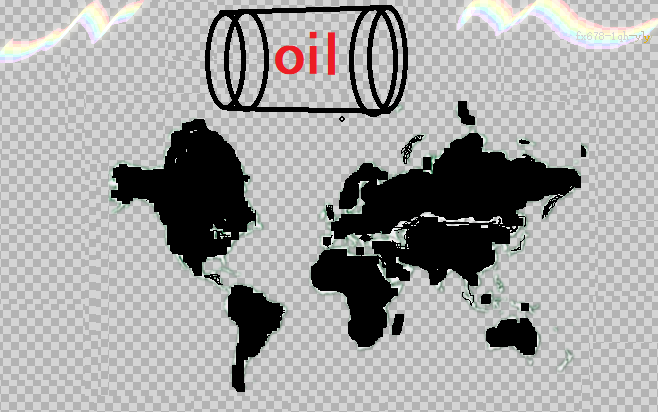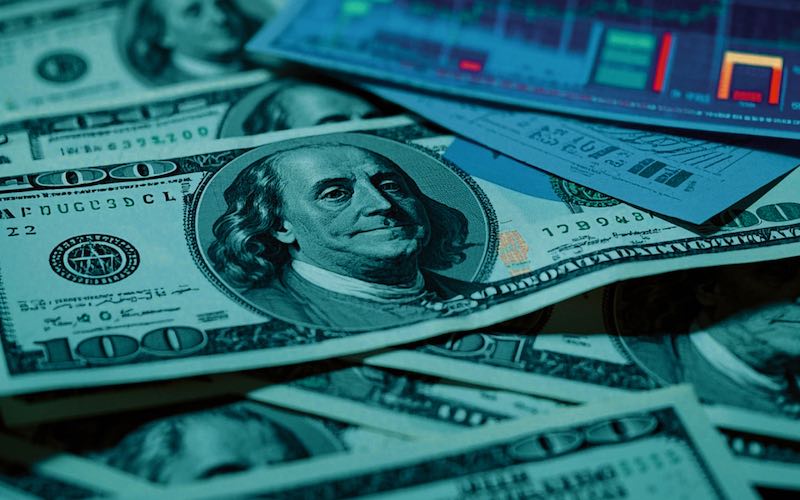OPEC insists that "oil demand has not peaked", Brent crude oil returns to above $70, beware of Trump's "major sanctions" against Russia next week
2025-07-12 06:17:36

Brent crude futures settled up 2.5% at $70.36 a barrel. U.S. crude futures rose 2.8% to $68.45 a barrel. For the week, Brent futures rose 3% and U.S. crude futures rose about 2.2%.
Although Trump escalated tariffs on many countries this week, the market reaction was limited and oil prices eventually closed higher. Among many supporting factors, the growth in summer demand was an important support. Phil Flynn, senior analyst at Price Futures Group, said: "The market is beginning to realize that supply is tight."
HSBC expects the impact of any tensions in the Middle East on oil prices to gradually weaken in the future, while the strategies of major oil-producing groups, tariffs and summer oil demand will become the dominant factors.
The International Energy Agency said global oil markets may be tighter than they appear, helped by peak refinery capacity in the summer to meet travel and power generation needs. September Brent crude futures are trading at a premium of about $1.20 to October futures.
Energy services company Baker Hughes said U.S. energy companies this week reduced the number of active oil and gas rigs for the 11th consecutive week. The last time this happened was in July 2020, when the coronavirus pandemic caused a drop in fuel demand. Saudi Arabia is expected to export about 51 million barrels of crude oil to China in August, which will be the highest in more than two years, one of the signs of improving demand.
Saudi Arabia’s Energy Ministry said on Friday that the kingdom had fully complied with its voluntary OPEC+ production cut targets, noting that the kingdom supplied 9.352 million barrels per day of crude oil to the market in June, in line with the agreed quota.
The ministry added: “While production briefly exceeded supply, this additional production was not sold on the domestic or international markets but was redistributed as a contingency measure.
OPEC on Thursday cut its forecast for global oil demand over the next four years but raised its long-term demand forecast due to rising demand in developing countries, saying demand has not yet peaked.
OPEC expects global oil demand to rise to 106.3 million bpd in 2026 and climb to 111.6 million bpd in 2029, but that’s still below last year’s forecast. OPEC expects demand growth to last longer than other forecasters, including BP and the International Energy Agency (IEA), which expects oil demand to peak in the 2020s.
OPEC Secretary-General Gass said that oil remains at the core of the global economy and there is no sign of peak demand. OPEC expects India, the Middle East and Africa to drive long-term demand growth, with global oil demand reaching 122.9 million barrels per day by 2050, higher than the 120.1 million barrels per day forecast last year.
OPEC Secretary General Al Ghais said OPEC+ is gradually lifting voluntary production cuts due to strong global economic growth and high oil demand. Despite discussions about trade tariffs and a potential economic slowdown, OPEC sees positive signs for global economic growth.
OPEC expects global economic growth to be 2.9% this year. The Middle East and China have strong oil demand, India's aviation industry is booming, and the third quarter of the United States is a peak season for gasoline consumption. OPEC+ has accelerated its exit from production cuts since May, increasing production by 411,000 barrels per day in May, June and July respectively, and plans to increase production by another 548,000 barrels per day in August, but the actual increase in production is limited by the compensation mechanism and is only 502,000 barrels per day.
According to OPEC representatives, OPEC+ is discussing suspending further production increases after the next monthly increase (the scale of September's increase will be decided in August). Delegates said OPEC+ may wait for a while before considering restoring another layer of production cuts, which would be about 1.66 million barrels per day.
Yahya Saraiya, a military spokesman for the Yemeni Houthi armed forces, issued a statement on the 7th saying that the Houthi armed forces attacked the "Magic Ocean", a ship that violated the Houthi armed forces' navigation ban and headed for Israel, with two unmanned speedboats, five missiles and three drones, and successfully hit the target.
Mahdi, a senior leader of the Houthi armed forces, said on the evening of the 8th local time that the maritime attacks launched by the Houthi armed forces are only aimed at Israel, as well as targets related to and supporting Israel, and the Houthi armed forces will not attack unrelated ships.
U.S. President Trump said on the 8th that he had approved the delivery of more defensive weapons to Ukraine and was considering further sanctions against Russia. On the 10th local time, Ukrainian President Zelensky said in an interview that negotiations between Russia and Ukraine would not be held for the time being because the prisoner exchange agreed by both sides had not yet been completed.
Trump said, I am disappointed with Russia, but we will see what happens in the next few weeks. I think I will make an important announcement on Russia next Monday. The Senate is expected to pass sanctions against Russia. They will pass a very important and very severe sanctions bill, but whether to implement it depends on the president.
The European Commission will propose this week a floating price cap mechanism for Russian oil as part of a new sanctions package to overcome opposition from some member states, four EU diplomats revealed.
In June, the European Commission proposed in the 18th round of sanctions against Russia to reduce the G7's price ceiling of $60 per barrel for Rosneft to $45. The G7 reached the price cap agreement in December 2022 to weaken Russia's ability to finance the conflict in Ukraine. The proposal to lower the price ceiling stems from the fall in global oil prices, which has made the current ceiling meaningless.

- Risk Warning and Disclaimer
- The market involves risk, and trading may not be suitable for all investors. This article is for reference only and does not constitute personal investment advice, nor does it take into account certain users’ specific investment objectives, financial situation, or other needs. Any investment decisions made based on this information are at your own risk.










